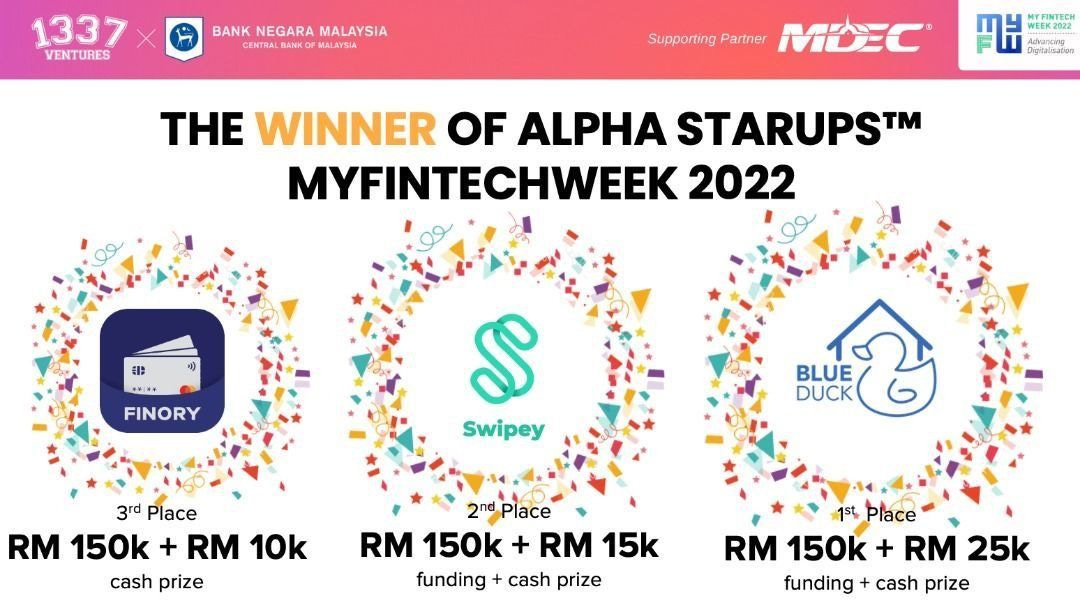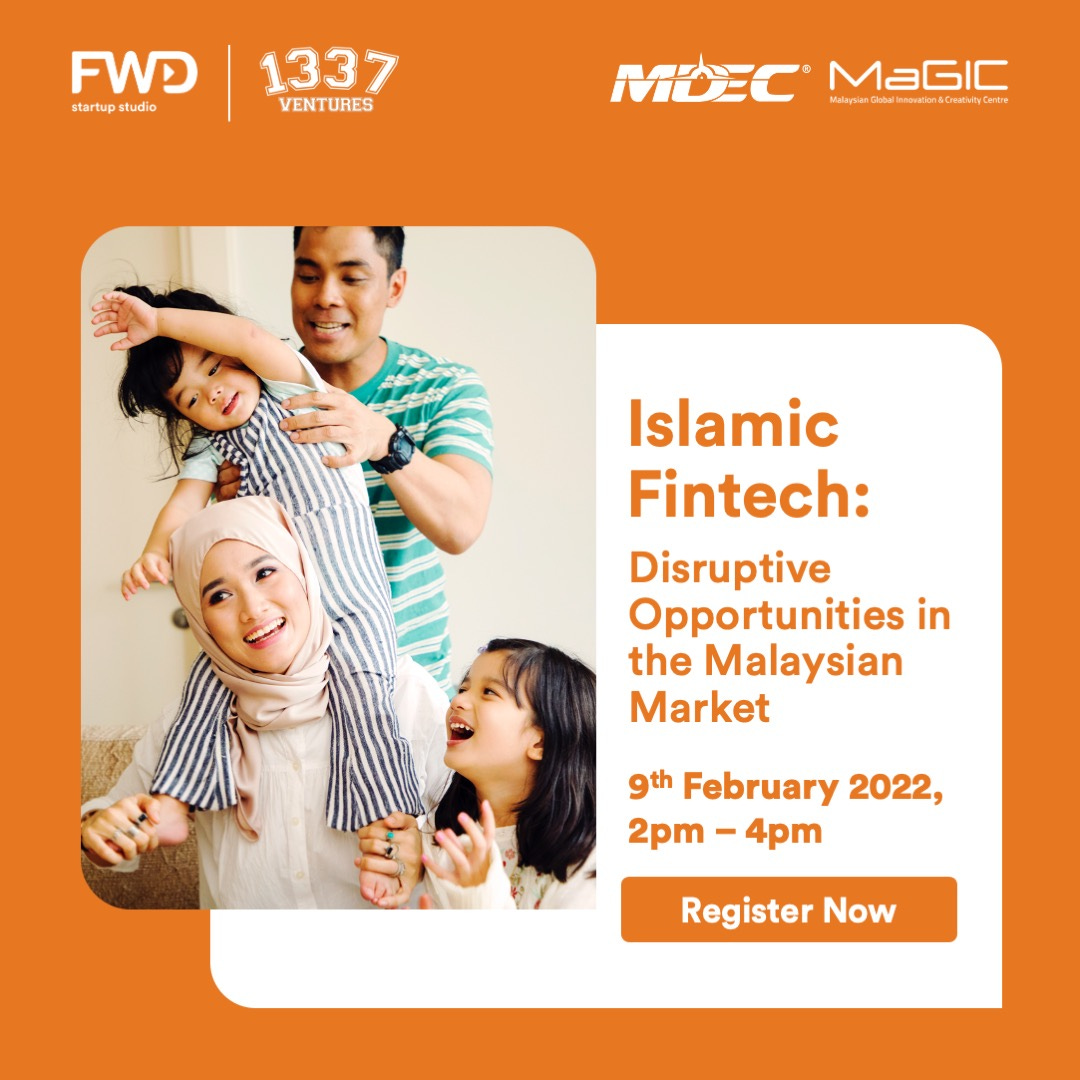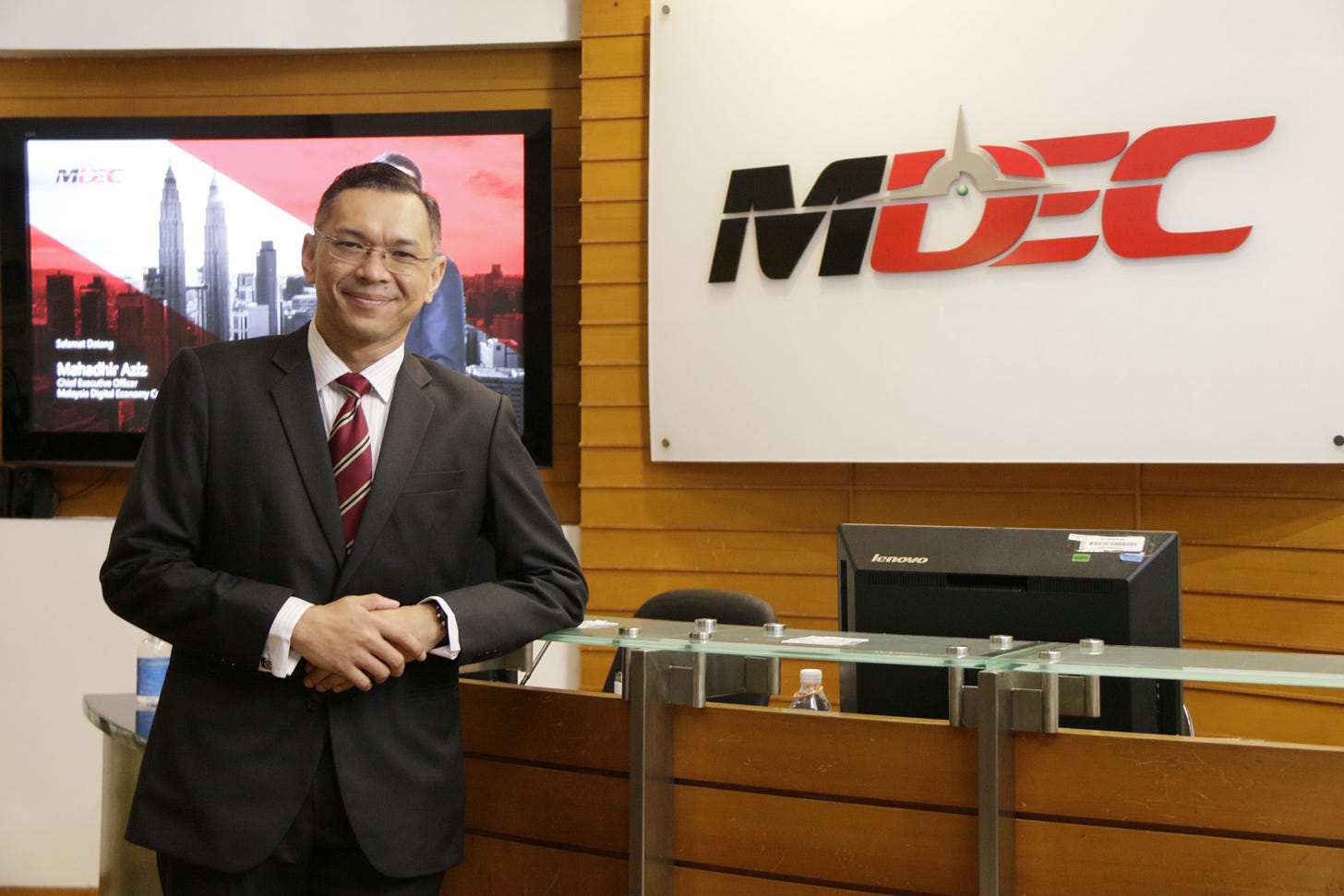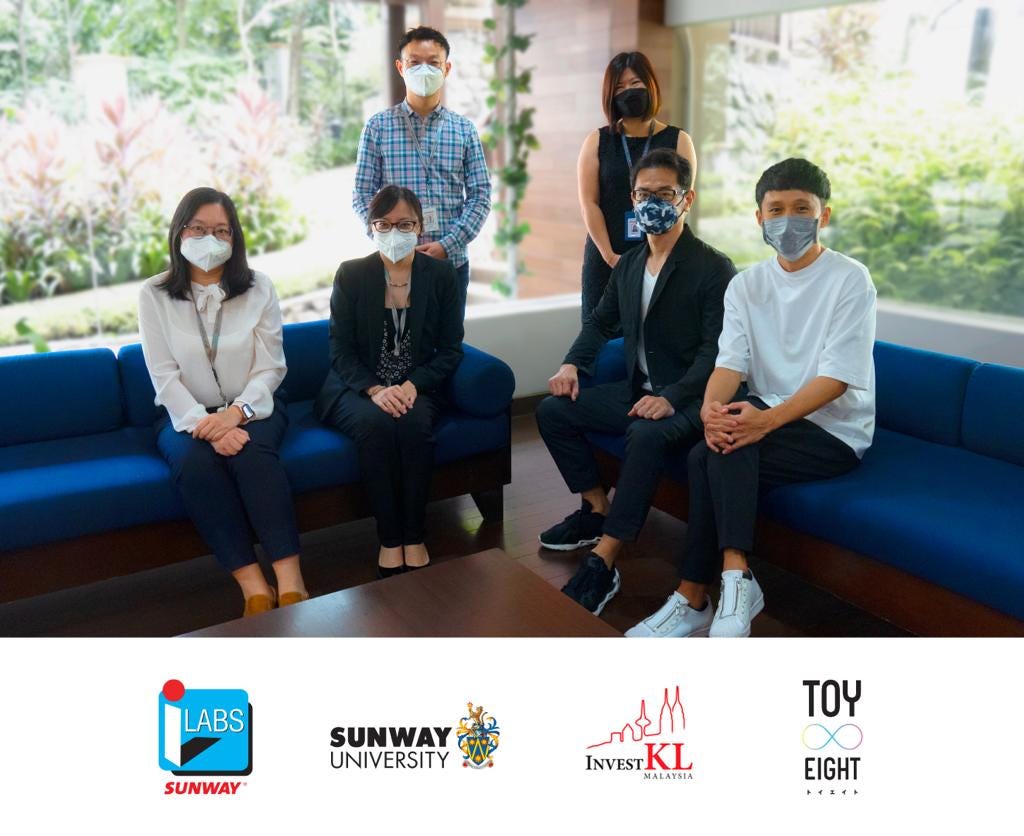The Need For Reskilling And Upskilling To Stay Relevant
Welcome back to an all-new Head’s Up. This week, we are featuring a byline written by Prof Dr Pradeep Nair, Deputy Vice Chancellor and Chief Academic Officer, Taylor’s University on the need for reskilling and upskilling.
But just before you go on to read the news, here are some news and announcements to catch up with. For everyone celebrating, all of us at Head’s Up would like to wish a safe and Happy Chinese New Year!
Till our next issue, stay safe and stay healthy!
News & Announcements
Top 3 Winners of Alpha Startups MyFintechWeek 2022 Announced
Congrats to Finory, Swipey and BlueDuck on becoming the 3 Fintech teams that got funded via the 1337 Ventures x Bank Negara Malaysia Alpha Startups MyFintechWeek Accelerator!
FWD x 1337 Ventures Alpha Startups Pre-Accelerator for Insurtech - Cohort 3
What's in it for participants:
1. The top 2 teams will receive an investment of RM150K funding each
2. Mentoring
3. Office hours with regulators, industry leaders, corporates & networking with angel investors
4. Digital perks such as AWS cloud credits, co-working space, airtable credits etcc
Programme info: https://fwdstartupstudio.com/pre-accelerator
To register: https://fwdstartupstudio.com/application
The Accelerator begins in early April 2022. Registration closes on 27 March 2022.
Islamic Fintech: Disruptive Opportunities in the Malaysian Market
A virtual session to connect aspiring entrepreneurs to leading industry players and learn about the opportunities in the Islamic Fintech industry while exploring the latest innovation in the sector.
Date/time: 9 February 2022, 2PM - 4PM
Presenters:
FWD: Desmond / Ze Han
INCEIF: Dr. Kinan Salim, Lead i-Connect Fintech in Islamic Finance at INCEIF
Masryef: Nurul Awfa, Shariah Officer at Masryef
Bank Islam: Zahrain Zulkifli, Strategic Management Division at Bank Islam
Event Agenda:
Introduction to FWD Startup Studio by FWD representative
2:00pm - 2:40pm: Dr. Kinan Salim, Lead i-Connect Fintech in Islamic Finance and at INCEIF
2:40pm - 3:20pm: Nurul Awfa, Shariah Officer at Masryef
3:20pm - 4:00pm: Zahrain Zulkifli, Strategic Management Division at Bank Islam
This session is a joint event by FWD Startup Studio and 1337 Ventures to catalyse the Insurtech and Fintech scene in Malaysia. Through this short webinar, participants will be able to learn how they can leverage off FWD Startup Studio’s programmes, partnerships, and investment to kickstart their journey of launching a Insurtech and Fintech startup in Malaysia. Interested to learn more? Join us on the 9th of February!
MDEC, Asean Fintech Group to Help Fintechs Scale
The Malaysia Digital Economy Corporation (MDEC), in collaboration with ASEAN Fintech Group (AFG), have announced a strategic partnership to enhance initiatives aimed at scaling up Malaysian fintech companies.
In a statement, MDEC said this collaborative efforts will focus on three key areas, namely deal flows, fintech ecosystem support and joint amplification.
MDEC said it will curate deal flows and funnel potential Malaysian fintech companies to AFG.
Japanese AI EduTech TOY EIGHT joins InvestKL GKL Live Lab Programme, Partners Sunway University to Build AI Assessment Tool
InvestKL, the leading investment promotion agency for Malaysia’s capital city announced the joining of Japanese artificial intelligence (AI)-backed edutech startup Toybox Creations and Technology (TOY EIGHT) to the Greater Kuala Lumpur (GKL) Live Lab programme.
Through the GKL Live Lab, Sunway iLabs (iLabs Foundry) connected TOY EIGHT to two psychology researchers from Sunway University’s School of Medical and Life Sciences, Dr Woo Pei Jun and Dr Wo Su Woan who worked closely with TOY EIGHT’s technical team for 12 weeks.
This collaboration resulted in a localised AI system that focuses on early childhood development including motor skills, fine motor, cognitive, receptive language, and expressive language.
The AI system aims to assist young parents in Malaysia to recognise what their children are naturally good at and unlock their talents through personalised learning content, whilst identifying areas of concerns or delay so parents can seek early assistance from professionals. The AI system is currently undergoing pre-commercialisation validation for the Malaysian market by Associate Prof. Dr. Rafidah Aga and Dr. Ponmalar Alagappar of the University of Malaya.
By Prof Dr Pradeep Nair, Deputy Vice Chancellor and Chief Academic Officer, Taylor’s University
The World Economic Forum (WEF) published ‘The Future of Jobs Report’ in 2020, warning that recession and the robot revolution may displace 85 million jobs by 2025. Machines are set to take over information and data processing, administrative tasks and routine manual jobs of white collar and blue collar workers.
The Covid-19 pandemic, border closures and national lockdowns have accelerated these changes in an unprecedented way, with businesses across the globe hastening their digitalisation of work processes and automation, with millions of low-skilled workers bearing the brunt.
Yet, the silver lining is that an estimated 97 million other jobs would be created, especially in industries requiring soft skills such critical thinking, creativity, reasoning and communication. These industries include artificial intelligence, content creation, engineering, cloud computing, and product development.
The catch is – are you the kind of worker that companies want to keep, or hire, in 2025?
The WEF says that to keep their jobs in the next five years, 50% of workers will need to reskill. In fact, by 2022, 42% of core skills required to perform existing jobs are expected to change.
Perhaps it is during the pandemic that many have realised that they need a fall back plan, which would enable them to value add to their current set of skills or quickly switch to a different industry. At Taylor’s, we’ve seen an increasing interest in courses such as data analysis, computing and education.
It’s with this realisation that workers have to pivot their careers and align with industry needs, that the Malaysian government allocated RM1billion in Budget 2022 for upskilling and reskilling programmes.
This also accommodates tax reliefs for those looking to level up their skills, with exemptions ranging from RM1,000 to RM2,000 for expenses incurred when attending reskilling and upskilling courses, claimable until 2023. Those looking to attend private upskilling courses would also be given a RM7,000 tax relief for their course fees, as long as they are enrolled in an approved institution or body.
Reskilling and upskilling can take many forms; such as through added responsibilities in a current job role, job rotations, being coached by peers or through a company’s learning and development programme.
However, one can agree that there are obstacles – be it company policies, lack of opportunities, or the structured manner of job roles – when employees want to ‘try out’ other job roles they are not skilled for, or to take up a company-funded programme with regards to a skill that is not at all related to their job.
Nevertheless, if you’re looking for flexible short courses that helps you gain the required skills you desire without hurting your pocket, and even gain certification for it, there are microcredential programmes available.
What are microcredentials?
Microcredentials is an industry recognised certification of learning of a smaller set of courses with credit value. It is designed to verify, validate, and attest that you have the knowledge, skills, or competencies in a specific area.
They are shorter, focused on a specific topic or skill, and more flexible than a traditional degree and designed according to the current market trends for various industries and professions.
Alternatively, those who have time on their hands could consider postgraduate courses, with an end-goal in mind. A Master’s or PhD programme would be appropriate for those wanting to deepen their knowledge in a particular area in an industry, or pivot their career into a different industry altogether such as counselling or teaching, or use this as a stepping stone into research and academia.
One may also enroll in a Master’s course if he or she is aiming to stand out from other job candidates, gain management skills and form networks in the industry, such as in the case of pursuing a Master’s in Business Administration.
Additionally, one can also look into postgraduate diplomas, which is a shorter duration compared to a Master’s degree.
No matter the route you take, the signs are clear; we need to start taking note of the changes in the job market and in the industry, and act before we are left behind.
Options for upskilling and reskilling is critical for Malaysians at this juncture, as a report published by McKinsey & Co (McKinsey) titled ‘Automation and adaptability: How Malaysia can navigate the future of work’ confirms the global findings of WEF.
By 2030, we will see 4.5 million people losing their jobs in Malaysia. That is approximately 25% of the workforce in the country.
Fortunately, new jobs that are emerging are those that can co-exist with technology, hence the need for working adults to upskill or reskill not just for career progression or a career switch, but to keep their jobs.
Such options will be increasingly mainstream as people approach education with a lifelong learning mentality, interspersing education with their working life, as various waves of the Industrial Revolution and disruptions to the industry continue to emerge.
Whether it’s a feedback or if you’d like us to put your story out there, reach out to us via headsupnewsletter@gmail.com









